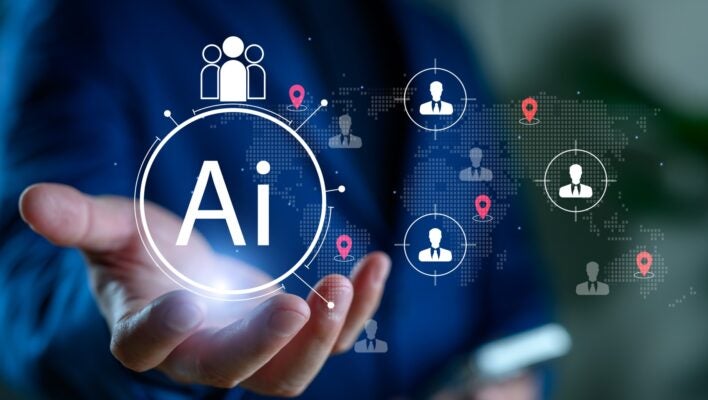Key Takeaways
- Nvidia’s CEO Jensen Huang has said businesses will be comprised of human-agent teams as AI develops.
- In a report earlier this year, Microsoft expressed a similar theory, with humans taking on leadership positions over AI.
- AI continues to drive change, particularly within enterprises, but it’s still uncertain how soon we will see human-agent teams.
Nvidia CEO Jensen Huang has said that future businesses will see humans and AI agents working together, with the agents being more like temps or agency staff brought in to do a specific task.
The setup closely mirrors a similar report from Microsoft, which sees humans and agents working together in human-agent teams, but with humans always taking the leadership roles.
Companies remain eager to implement AI into their workforce, and AI companies want to supply them, but what kind of impact is AI likely to have?
Humans and AI Will Soon Work in Tandem, Says Nvidia CEO
The CEO of semiconductor company Nvidia, Huang, said in an interview that future workforces will be comprised of humans and AI agents working together, in a hybrid arrangement.
Rather than businesses building their own AI agents, Huang said it would be a case of AI agents being like temporary workers or agency staff, that come with a specific area of expertise.
 This just in! View
This just in! View
the top business tech deals for 2025 👨💻
Speaking at Citadel Securities’ 2025 Future of Global Markets conference, Huang noted that the advancements that have been made to AI mean that the makeup of workforces will certainly change, echoing the sentiments of other CEOs.
What Would Human-AI Collaboration in the Workplace Look Like?
Huang’s predictions closely resemble those written in Microsoft’s 2025 Frontier Firm report, which was released earlier this year. The report outlines a similar structure of human-agent collaboration, in a set up that sees all humans set up with an AI assistant, and others leading teams of agents.
However, rather than having agents work in-house, Huang sees a future where AI agents are used as experts in specific tasks, deployed by leading AI companies such as OpenAI, which Nvidia has recently partnered with.
“Those digital employees are going to work with our biological ones, and that’s going to be the shape of our company in the future.”
– Jensen Huang, CEO of Nvidia
Both Microsoft’s and Huang’s theories see humans remaining at the helm, as the verdict is still out on whether humans would like to be led by agents. A recent study from Workday found that only 30% of respondents feel comfortable being managed by an AI agent.
Is Enterprise AI Rising to the Occasion?
Plenty of firms are now prioritizing using AI, and the technology continues to develop fast. In turn, AI companies have continued to expand their enterprise offering, with Google doing this most recently with Gemini Enterprise packages.
According to leaders in both the AI space and beyond it, the technology will change the workforce as we know it. We’ve all seen the narrative that AI will lead to significant job losses, and some CEOs have gone as far as to say it could wipe out whole tiers of employment.
However, if you’ve used AI yourself, you’ll know it’s far from perfect. AI mistakes are still rampant, and some studies out there suggest that AI isn’t making us as productive as we think. Despite this, as the industry continues to evolve at a rapid pace, Huang’s prediction could soon be our reality.




